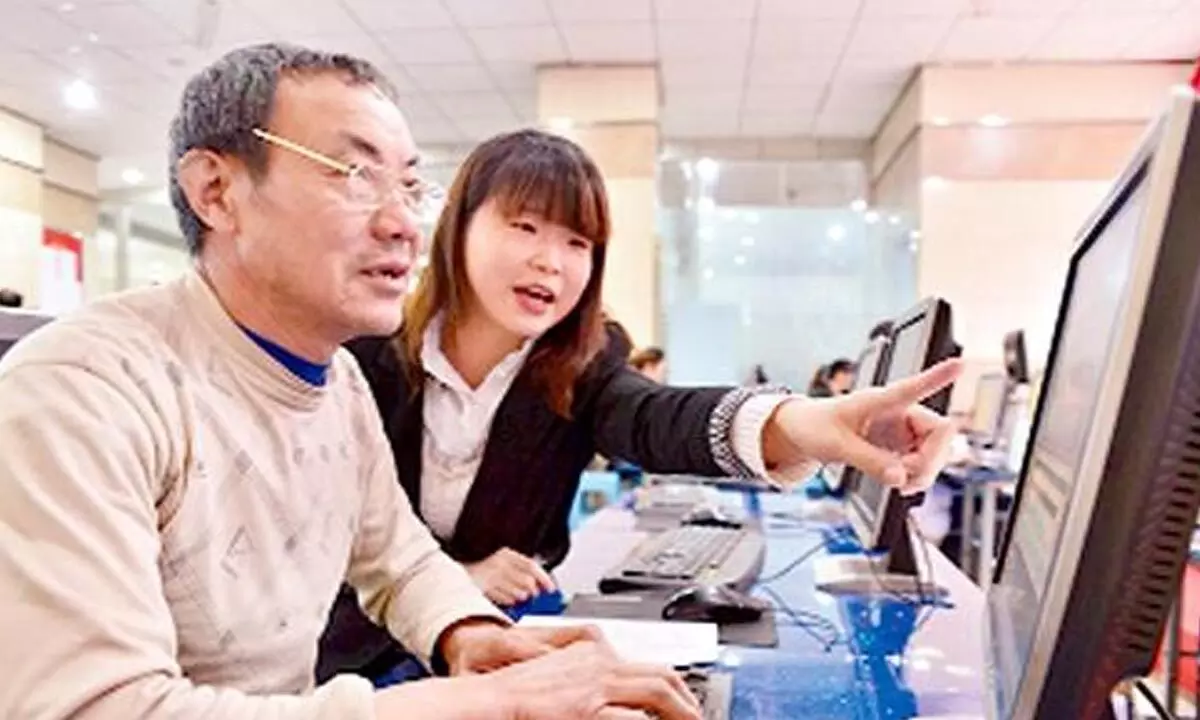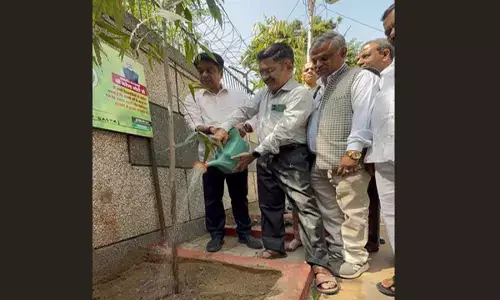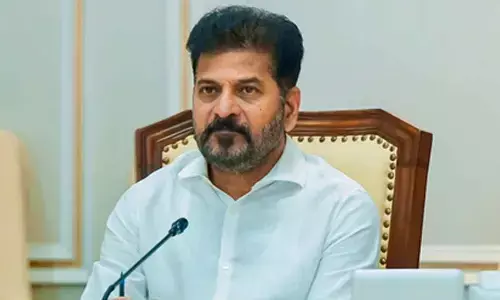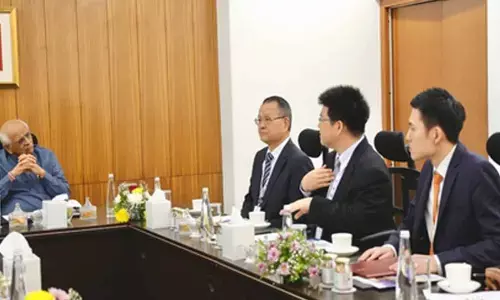How digital tech can aid aged people to lead quality life

How digital tech can aid aged people to lead quality life
The digital world will enable older persons to participate and contribute to societies negating misconception that they are vulnerable
Every year May 17, is celebrated as World Telecommunication and Information Society Day. The previous name for the day was World Telecommunication Day to celebrate the founding of the International Telecommunication Union (ITU) on May 17, 1865. Following the 2005 World Summit on the information society in Tunis, the United Nations General Assembly proclaimed 17th May as World Information Society Day. The ITU conference in Antalya, Turkey in November 2006 decided to celebrate these two events on May 17, as World Telecommunication and Information Society Day. The goal of this celebration is to raise awareness of the use of the internet and other Information and Communication technologies (ICT) in society and economy and bridging the digital divide.
Theme for the World Telecommunication and Information Society day, 2022
Every year ITU declares a theme for the World Telecommunications and Information Society day and the theme for this year is "Digital technologies for older persons and Healthy ageing." The theme emphasises the importance of using telecommunication and information technologies for enabling older persons to stay healthy, connected and independent physically, emotionally and financially. Supporting a life of healthy ageing is also critical for the sustainability of economic and health systems. The ITU hopes to foster initiatives to accelerate digital technologies for older persons and healthy ageing that will contribute towards the UN decade of healthy ageing.
Messages on this occasion
The message given by ITU Secretary General for the world Telecommunication and Information Society day 2022 (WTISD 2022) - "Digital technologies are a crucial factor for everyone's healthy ageing. Equitable access to digital technologies is not just a moral responsibility, it's essential for global prosperity and sustainability. As we celebrate ITU's history, we are reiterating our commitment to expand digital access to all regions as well as all ages". Deputy Director General, World Health Organisation (WHO) in her massage on this occasion says that "harnessing the potential of digital innovation is imperative for achieving the universal health coverage of older persons"
The ageing of the global population will be the defining demographic trend of the 21st century and society is struggling to find the opportunities that this trend may bring. Telecommunications and information technologies have a role to play in achieving healthier ageing and can also in helping people build smarter cities (which are aged friendly), combat age based discrimination at the workplace, ensure financial inclusion of older persons and support millions of caregivers across the world. ITU calls on member states to use ICT to develop digital policies and strategies and to use digital technologies to enable older persons to age healthily. ITU calls on members and academia to continue to foster cooperation and partnerships in innovations and digital knowledge/literacy, creating opportunities for economic, social and political growth and harnessing new possibilities to strengthen digital inclusion and aged-friendly digital environments.
Senior citizens who have contributed to society during their prime time should be enabled to use digital technologies for leading a comfortable life. They should not be left behind in taking advantage of digital technologies. These digital technologies/devices should be simple and senior citizen friendly. Digital technologies should also help them to live a healthy life and age gracefully. Their domain knowledge and experience should be gainfully disseminated to the society using ICT so that society is benefited and the senior citizens also feel satisfied that they continue to contribute to the society.
The world population is ageing. First time people above 60 years of age have outnumbered children of less than 5 years of age. It is predicted that their number will reach 2 billion by 2050. Older people are an asset to their families and societies. However they are considered as vulnerable and dependent on the younger generation.
The digital world will enable older persons to participate and contribute to societies turning the misconception from vulnerable to valuable. In the interconnected world ICTs can empower and contribute independent and fulfilled lives to present and future older adults. ICTs, if provided in accessible and user friendly formats and platforms, can be the valuable enablers for the older adults which help them to overcome easily ageing related limitations including hearing, dexterity and visual impairment.
How digital technologies are helpful to senior citizens?
• Smart television allows users with hearing aids to enjoy all types of entertainment content with their families.
• Using a 5G enabled AR (Augmented Reality)/ VR (Virtual Reality) headset, the visually impaired individual can be connected in real time to a live advisor who can guide for carrying out certain activities in daily life like crossing the road.
• Using virtual assistance technology, old people can obtain all types of information and access online services. Zooming features can be used to increase the font size to facilitate reading. The digital context reduces distances and avoids isolation and loneliness. It also facilitates active participation of senior citizens in all aspects of today's society.
• They can buy products/services easily at their door steps by using e-commerce platforms, manage their finances and payments conveniently by using e-banking and continue life-long learning through e- learning platforms.
• Smart healthcare devices have eliminated the need for human interference and so will be useful for senior citizens.
• They can contribute to society by sharing their valuable experiences online and harnessing constructive dialogue between generations.
In 2020 it was estimated that the global market value of older adults, the so-called "silver economy", to be 17 trillion US dollars and growing. There is a huge business opportunity for this untapped market. To help the membership countries to create accessible and age friendly ICT environments, the ITU has developed the report 'Ageing in a digital world from vulnerable to valuable'. The report raises awareness of the trends and good practices, provides guidelines to ensure healthy, happy and valuable ageing and empower older persons as active participants in their digital communities and societies.
Way forward
In some smart cities, IOT (Internet of Things) sensors are used in traffic lights to track the pavement and identify if a senior citizen passes by. On identifying, the smart traffic system automatically increases the amount of time for pedestrian crossing.
To ensure that in smart cities suitable services are provided to the elderly, it is necessary to involve senior citizens in the planning phase so that the required services using IOT, AI (Artificial Intelligence) and ML (Machine Learning) technologies are built to ease their lives.
By building an accessible and inclusive digital environment, the senior citizens can adapt technology to suit their specific abilities and needs. They should be cautioned not to reveal their passwords and bank account details so that they will not fall prey to online fraudsters. 5G technology supports autonomous cars (driverless cars). When introduced, they are a better choice for senior citizens considering that they may find it difficult to navigate in high traffic cities and at the same time they need not depend on others for their commuting needs.
(The author is a former Advisor, Department of Telecommunications (DoT), Government of India)L Anantharam








